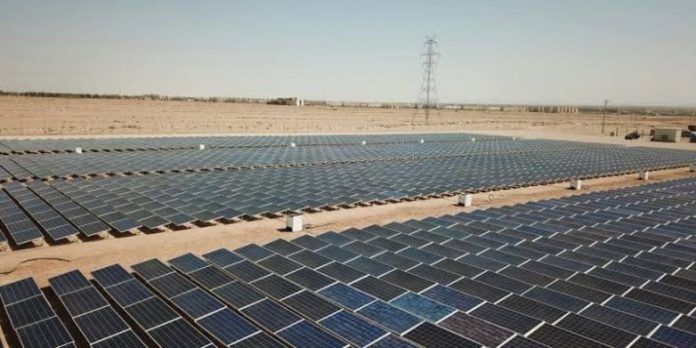Facebook Twitter (X) Instagram Somali Magazine - People's Magazine
Somalia’s Ministry of Energy and Water Resources has launched a significant tender for a large-scale hybrid solar and battery energy storage project in northeastern Somalia. The initiative, part of the Somali Electricity Sector Recovery Project, seeks to expand the nation’s renewable energy capacity and improve grid stability.
Project Overview
The project involves the design, supply, installation, testing, and commissioning of a 10 MW solar photovoltaic (PV) plant integrated with a 20 MWh battery energy storage system (BESS) and a 33 kV evacuation line. The hybrid system will be developed on a 290-hectare site in Garowe, Puntland.
This project will be executed for the National Energy Corp. of Somalia, one of the country’s largest utility providers, and aims to contribute significantly to Somalia’s clean energy transition.
Tender Details and Application Deadline
The tender process is open for bids from qualified contractors and developers. Key deadlines include:
Pre-bid Conference: A virtual meeting scheduled for January 23, 2025, to clarify project specifications and address potential bidder questions.
Application Submission Deadline: February 10, 2025, is the final date for submitting proposals.
Interested parties can find the complete tender details on the official World Bank website, as the project is being financed under the World Bank’s renewable energy initiatives.
Somalia’s Growing Solar Capacity
Somalia has made strides in expanding its renewable energy infrastructure in recent years. By the end of 2023, the country had deployed 51 MW of solar capacity, an increase from 47 MW in 2022, according to the International Renewable Energy Agency (IRENA).
The new 10 MW solar-plus-storage project marks a critical step in further expanding the nation’s renewable portfolio and reducing reliance on diesel-based generation, which has historically dominated Somalia’s power sector.
Significance of the Hybrid Solar-Plus-Storage Project
The hybrid nature of the project, combining solar power with a 20 MWh battery energy storage system (BESS), provides several key benefits:
Grid Stability: Battery storage allows for better load balancing and reduces fluctuations in power supply.
Energy Access: The project will improve electricity availability in Puntland, supporting economic development.
Sustainability: Reducing dependency on fossil fuels aligns with global decarbonization goals.
Cost Reduction: Solar energy coupled with storage reduces long-term electricity costs compared to traditional diesel generation.
World Bank’s Role in Financing
The World Bank is playing a key role in financing the Somali Electricity Sector Recovery Project, emphasizing global collaboration for sustainable development. This funding ensures the project’s implementation while promoting energy security and climate resilience in the region.
The World Bank’s financial support also reflects the growing importance of renewable energy in post-conflict reconstruction efforts, as Somalia continues to rebuild critical infrastructure.
Previous Solar Energy Initiatives in Somalia
This project follows a similar initiative announced in November 2024, where Somalia launched a tender for 25 off-grid solar-plus-storage plants at healthcare facilities across two regions. These projects aim to improve healthcare delivery by ensuring consistent electricity supply.
Puntland’s Renewable Energy Potential
Puntland, where the 10 MW solar project will be developed, holds significant renewable energy potential due to its abundant sunlight and open land availability. The region’s focus on solar energy development could serve as a model for other areas of East Africa seeking to expand clean energy infrastructure.
Challenges and Considerations
While the project offers substantial benefits, it also presents challenges:
Technical Expertise: Developing a large-scale hybrid system requires skilled labor and advanced engineering knowledge.
Logistics: Delivering and installing equipment in remote regions can present logistical hurdles.
Operational Management: Effective maintenance and training will be crucial for the long-term success of the solar and storage system.
Future Prospects for Renewable Energy in Somalia
Somalia’s continued investment in solar energy projects highlights its ambition to transition towards a more sustainable and decentralized energy system. The 10 MW solar hybrid project could pave the way for further renewable investments, including wind energy and microgrid solutions across rural regions.
Conclusion
The launch of this 10 MW hybrid solar and battery storage project in Puntland represents a major step forward for Somalia’s renewable energy landscape. Backed by World Bank funding and aligned with the goals of the Somali Electricity Sector Recovery Project, it promises to enhance energy access, reduce emissions, and stimulate economic growth.

